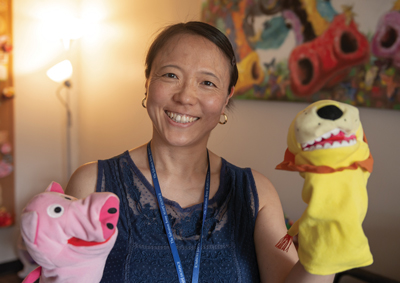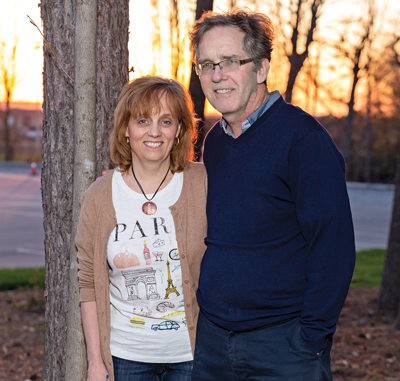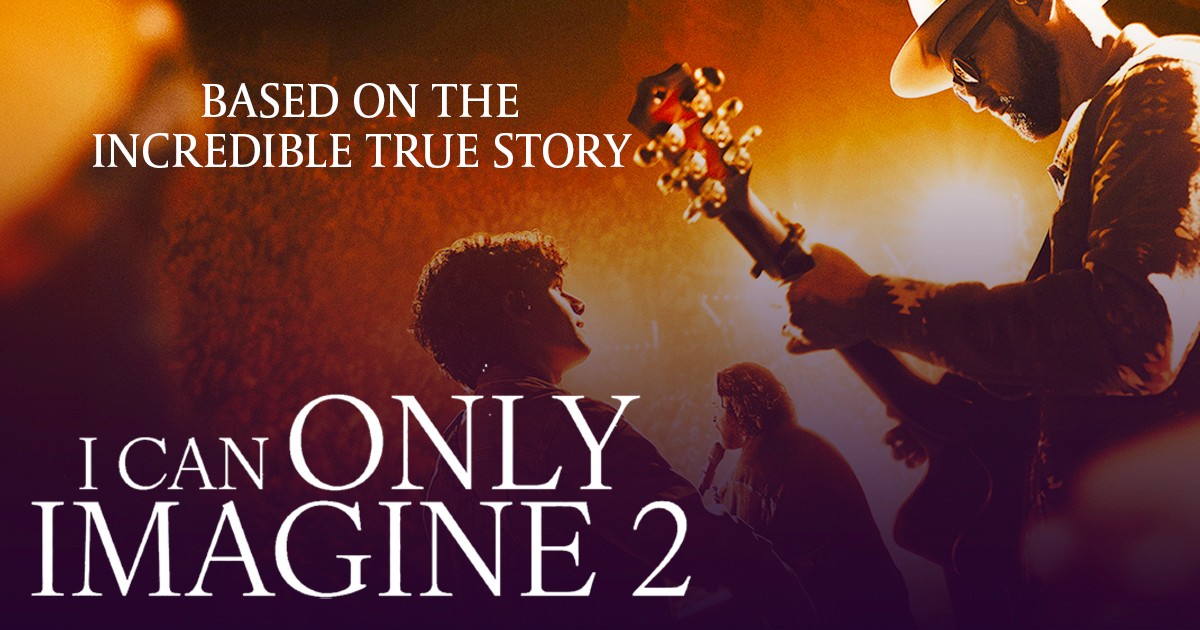If we’ve learned anything from the COVID-19 nightmare of 2020, it’s that we can’t escape pain or suffering. This has been a year of suffering on a global scale, a year when we learned the true meaning of lament, described by theologian N.T. Wright as “asking the question ‘why’ in the midst of our suffering and not getting an answer.”
What does the suffering voice of lament sound like?
Lament is not a word or place we visit much these days. But it was familiar, often-travelled terrain for our heroes of faith as they journeyed through the world. In the Psalms, we hear David’s anguish as he cried out:
• “Why do you hide your face and forget our misery and oppression?” (Psalm 44:24).
• “We are given no signs from God; no prophets are left, and none of us knows how long this will be” (Psalm 74:9).
• “All our days pass away under your wrath; we finish our years with a moan” (Psalm 90:9).
We can almost feel the sadness of Jeremiah’s lamenting: “This is why I weep and my eyes overflow with tears. No one is near to comfort me, no one to restore my spirit. My children are destitute because the enemy has prevailed” (Lamentations 1:16).
We are brought face to face with our suffering Saviour as he shared with his closest friends in the garden: “My soul is overwhelmed with sorrow to the point of death” (Matthew 26:38).
As you read these verses, perhaps you feel a connection with experiences in your life. If so, then you have shared in the language of lament.
How can our theology help us in our grief?
Our theology, as well as our Christian faith, practice and experience, provides us with a road map as we journey through grief, a journey that leads us straight to God. When grief hits us hard, such as with the loss of a loved one, and we are angry, hurt and in great pain, there is little comfort in saying, “God has a plan” or “Keep the faith.” Pretending that “all is well” doesn’t work, either. But in our grief, we can lament—bringing our cries and groans before God. In doing so, we acknowledge he is the Creator, Preserver and Governor of all things.
The deep pain and suffering we feel needs more than trite answers.We cry out to God—we lament—when we sense that he has crossed the line, that he’s taken away something we love or added a burden that is more than we can possibly bear. The deep pain and suffering we feel needs more than trite answers. “As serious practitioners of faith [we] do not flinch from despair or practise easy consolation,” writes biblical scholar Walter Brueggemann. We must go to the One who loves us the most: “Lord, to whom shall we go? You have the words of eternal life. We have come to believe and to know that you are the Holy One of God” (John 6:68-69).
Our theology, as well as our understanding of suffering, finds its strength in the cross of Christ. Can we make room for uncomfortable and mysterious truths of Scripture that affirm, “He who did not spare his own Son, but gave him up for us all”( Romans 8:32), and the verses that bring an uncomfortable alignment of fellowship and suffering—“I want to know Christ—yes, to know the power of his Resurrection and participation in his sufferings, becoming like him in his death, and so, somehow, attaining to the resurrection from the dead” (Philippians 3:10-11)? If we reject the place suffering has in our life, what does that say about our view of the cross?
Why pray in times of suffering?
We pray because we believe that there is Someone and something greater than our own suffering. While we are in the grip of suffering, we end the day in a posture of trust in the Almighty because we have seen what it means to the world when someone chooses redemptive suffering. Jesus Christ chose suffering and death (see John 10:18), and with that choice he changed the trajectory of the entire world; heaven and earth shifted toward full redemption and final resurrection. What if our own suffering has the potential to change the trajectory of our lives, and the lives of others, as well?
What if our suffering binds us to the suffering Saviour (see Philippians 3:10-11)? What if Christ’s suffering can flow into our lives so that his comfort can flow into others (see 2 Corinthians 1:5)? What if, in some mysterious way, our suffering declares the glory of God and the life, death and Resurrection of a suffering Saviour (see 2 Corinthians 4:10)?
What role does the body of Christ play during times of suffering?
It is challenging to be present with someone who is suffering—gut wrenching, in fact. Our empathy kicks in and we simply want to ease the suffering of our family, friend or neighbour. If we could find a “magic wand” to make it better, we would. But there is no easy remedy for suffering, and little we can say to ease the pain of another. So, then, what is our task as followers of Christ within the suffering world? As members of the body of Christ we can be the “voice of those who know profound grief, who articulate it and do not cover it over,” writes Brueggemann. “But this community of hurt knows where to speak its grief, toward whom to address its pain. And because the hurt is expressed to the One whose rule is not in doubt, the community of hurt is profoundly a community of hope.”
What believers can do with suffering.
1. Practise lament. In our speech, our poetry, our music or art—our outward experience. Perhaps our Salvationist artists can lead the way, as Gowans and Larsson did in their composition, There Is a Time for Tears.
2. Allow ourselves to groan. Align our internal grief-experience with the Spirit of God and all of creation. Allow the Holy Spirit to direct our thoughts and imagination to people, circumstances or places that are suffering. Sit with it for a while without distraction.
3. Pray. Ask the Holy Spirit to bring to mind those who are suffering. “O Christ on the road of the wounded, O Christ of the tears of the broken, I bring the needs of ____” (adapted from Celtic Prayers from Iona by J. Philip Newell). Perhaps write out a prayer and give it to them in a card or email.
4. Move toward others. We connect with suffering humanity as Jesus did, and rather than trying to insulate ourselves from suffering, we move toward others in their suffering. We offer hope as the antidote to despair (see Romans 15:13).
What believers shouldn’t say to those who suffer.
1. “At least.” “At least you have your health.” “At least she/he didn’t suffer long.” “At least you had that time together.” When we use these phrases, we diminish the legitimate pain that others are experiencing.
2. “God never gives us more than we can handle.” This is not true. God will allow difficult things to come our way that are beyond our ability to bear. “Indeed, we felt we had received the sentence of death. But this happened that we might not rely on ourselves but on God” (2 Corinthians 1:9).
3. “Everything happens for a reason.” Though spoken to try and articulate God’s sovereignty, this statement offers little to those who grieve and is offensive to those on the receiving end of evil and injustice in the world.
4. “God is in control.” This statement is both unhelpful to the one suffering and confusing in terms of our understanding of God. Does it mean “God is in control so everything will work out fine”? Reflect for a moment on God’s measure of “control” in our own lives. God has given us free will to choose, and that free will extends to those around us—including those who choose to misuse that gift and do harm that results in our suffering. It is theologically accurate to say that God’s power works with and through us in our weakness and suffering (see Romans 8:28), but it may not be helpful to speak it out loud to those in the midst of suffering.
Ecclesiastes 3:4 says it well. There is indeed “a time to weep and … a time to mourn.” If we are suffering, we can and should embrace lament. If we are companions or pilgrims together with those who suffer, let’s listen well, care deeply, pray often and find ways to serve. N.T. Wright reminds us that “When we are indwelt by the Holy Spirit, then somehow, God is praying within us for the pain around us.”
Captain Barbara Stanley is the director of pastoral services in the Canada and Bermuda Territory. Captain Mark Stanley is the assistant to the territorial secretary for business.
Photo: mgruenberg/stock.Adobe.com
The Women of Zarephath
 Ruby Callahan (far right) leads The Women of Zarephath, a group that offers care and support for widows at Botwood Corps, N.L.
Ruby Callahan (far right) leads The Women of Zarephath, a group that offers care and support for widows at Botwood Corps, N.L.
“There were a number of recent widows, and she picked up on the hurt and loneliness,” says Ruby Callahan, who had lost her husband a year earlier, after 44 years of marriage. “We started meeting together every month, to share a time of worship, an uplifting devotional, conversation and a meal.”
About 12 people attend the group, which takes turns meeting in members’ homes. After the first series ended, Callahan stepped in to lead, even though her own grief was still fresh.
“I had just come through the journey of Alzheimer’s with my husband,” she says. “He was ill for four years and in longterm care for the last eight months. It was hard. When it was over, I was physically tired.
“But I felt this was important, and that I could help some of the others. And by doing that, I was helping myself.”
The group is named after the biblical widow who, in the middle of a drought and famine, shared the last of her flour and oil with the prophet Elijah. As she responds in faith and obedience, giving generously out of what little she has, she finds that her own needs are met—to overflowing (see 1 Kings 17).
“The widow of Zarephath practised hospitality in the most difficult of days, and I believe that is what Ruby did for this group of women,” says Major Rowe. “Even in her own grief, she stepped out in faith, giving of herself at a time when she felt empty. I know these women dearly appreciated how she reached out to them over the years and made a place where they could be filled with God’s love and peace.”
An Elephant Never Forgets
 The Elephant Club at The Salvation Army’s Agapé Hospice in Calgary helps grieving children express their feelings through play, art and storytelling
The Elephant Club at The Salvation Army’s Agapé Hospice in Calgary helps grieving children express their feelings through play, art and storytelling
Children facing the loss of a loved one have many questions. That’s why The Salvation Army’s Agapé Hospice in Calgary started the Elephant Club, a grief support program for children under 13 who are connected to current residents.
“Children need a safe place to express their thoughts and feelings,” says Shizuko Boga, the social worker at Agapé Hospice. “Elephants have big ears to listen, just like we do.”
The name of the club also comes from the poem, The Elephant in the Room, which describes the loneliness people can feel when others avoid their grief.
“When serious illness occurs in a family, adults often want to protect children from suffering,” says Boga. “And parents going through their own grief may not be emotionally available to help their child. A child’s experience of grief can be painful and isolating.”
While children are visiting the hospice, they have access to the Elephant Club room, stocked with toys, books and games, or they can keep a mobile cart with art and craft supplies in their family’s room. Elephant Club members, Boga and trained volunteers are available to provide immediate, one-on-one or small group support in a variety of ways.
Depending on the age of the child, conversation may not be the best approach, so Elephant Club members help children express their feelings and thoughts through play, art and storytelling. They may use puppets or stuffed animals, make something to give to the dying person or write them a poem or letter.
Creating unique rituals can also help honour memories, such as letting go of a balloon with a note in it or blowing bubbles and making a wish. One family found it comforting for a grandparent and grandchild to plant spring flower seeds in pots and display them in the resident’s room and the family home. When the grandparent passed away, they planted the flowers together at their home.
As well as giving children a safe place to grieve, Boga provides support for the adults in their lives. “Many have said that they don’t know how to speak to children about illness, death and dying,” she says. “But children can sense when something is wrong or has changed.”
She offers a listening ear and resources to help recognize grief in children—which is often expressed through changes in behaviour—and how to respond, according to their age, to help them cope.
“It is our hope that children begin the work of grieving alongside their parents while experiencing the same loss,” says Boga. “Children do grieve, and they want to be involved in the process, while receiving love and attention from a caring adult.”
Valley of the Shadow
 “We were thankful to know we could be ourselves and let down the mask we wore,” say Kathy and James Lewis, who participated in GriefShare at The Salvation Army’s Northridge Community Church in Aurora, Ont., after the death of their son, Garrett (Photo: Giselle Randall)
“We were thankful to know we could be ourselves and let down the mask we wore,” say Kathy and James Lewis, who participated in GriefShare at The Salvation Army’s Northridge Community Church in Aurora, Ont., after the death of their son, Garrett (Photo: Giselle Randall)
On Thursday, August 20, around 7:30 p.m., they were swimming near shore when a powerful rip current pulled Garrett under in rough water. As Wesley and his friend, Dani, along with James and other onlookers, desperately tried to reach him, he disappeared into the waves. On Sunday, August 23, around 7:45 a.m., Garrett’s body was recovered by Ontario Provincial Police divers.
“We were able to have a funeral,” says Kathy. “And find closure as best we could at the time.”
A few months later, friends at church recommended GriefShare, a grief recovery support program, and they found a group at The Salvation Army’s Northridge Community Church in Aurora, Ont. The 12-week program covers many topics related to grief—such as guilt, anger and answering the question why—from a biblical perspective, along with prayer support. Kathy and James attended five cycles, led by Jan and Gord Evans.
“We’re still on the journey, and there are still ups and downs, but thankfully the roller-coaster ride is not as perilous now."
“The first time was kind of a blur,” says James. “It was a lot of information, and it was painful to open up and live through it again. But we stayed with it. Everyone was incredibly supportive.”
“We were in so much shock,” agrees Kathy. “It was hard to register everything. But each time we’ve come, a little more strength and healing has percolated into our thoughts, and eventually into our hearts.”
Although it was sometimes challenging to not only carry their own grief, but that of others, GriefShare gave them a safe place to be honest about their feelings, with people who knew what they were going through.
“We were thankful to know we could be ourselves and let down the mask we wore,” says Kathy. “There aren’t a lot of people who understand what it’s like to go through the death of a child. So many tried hard to say the right thing but missed the mark. We spent a lot of time forgiving them, knowing they meant well. Unless you walk in someone else’s shoes, it’s hard to understand.”
GriefShare wasn’t only a lifeline for Kathy and James.
“Wesley was the last one to hold Garrett’s hand before he passed,” says Kathy. “He suffered with post-traumatic stress and felt frozen—he couldn’t move forward in life.”
But as Kathy and James slowly began to get stronger, so did Wesley.
“I think he sensed that he wasn’t going to hurt us, that we weren’t going to break,” says James. “He felt free to share more.”
“As much as we miss Garrett and want him back, Wes needs our support, so we’ve worked really hard to get healthy,” adds Kathy. “We’re still on the journey, and there are still ups and downs, but thankfully the roller-coaster ride is not as perilous now.
“We’re grateful to God that he allowed our paths to cross with so many others who helped us walk through the valley of the shadow.”
—Compiled by Giselle Randall










Comment
On Sunday, January 24, 2021, Jean Moulton said:
On Monday, January 18, 2021, Aimee Patterson said:
Leave a Comment